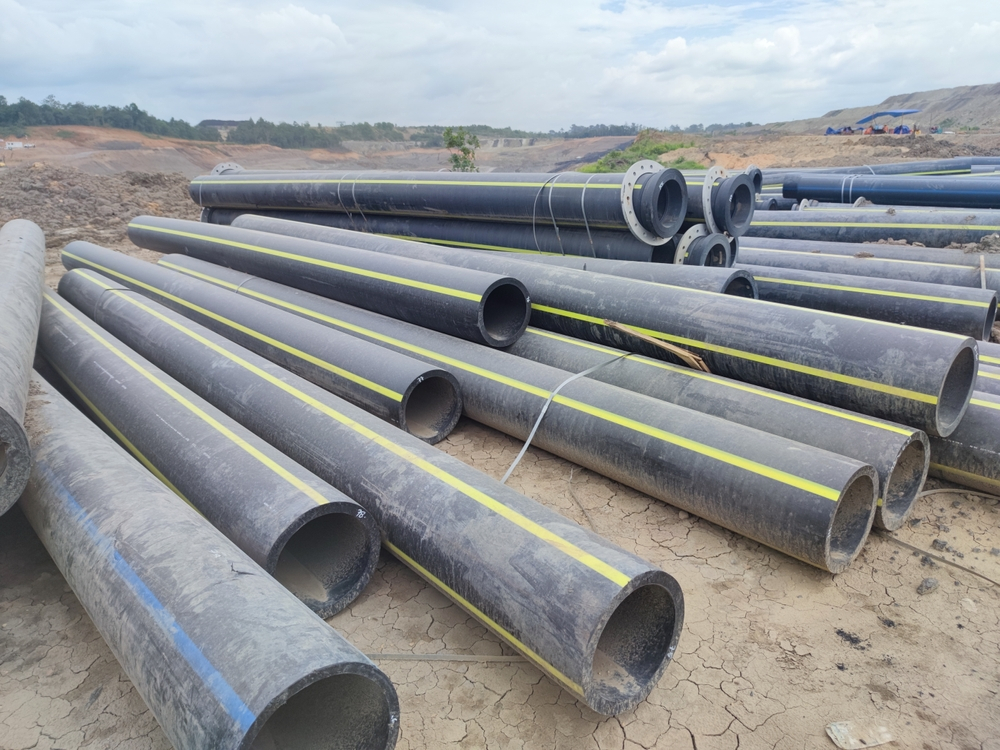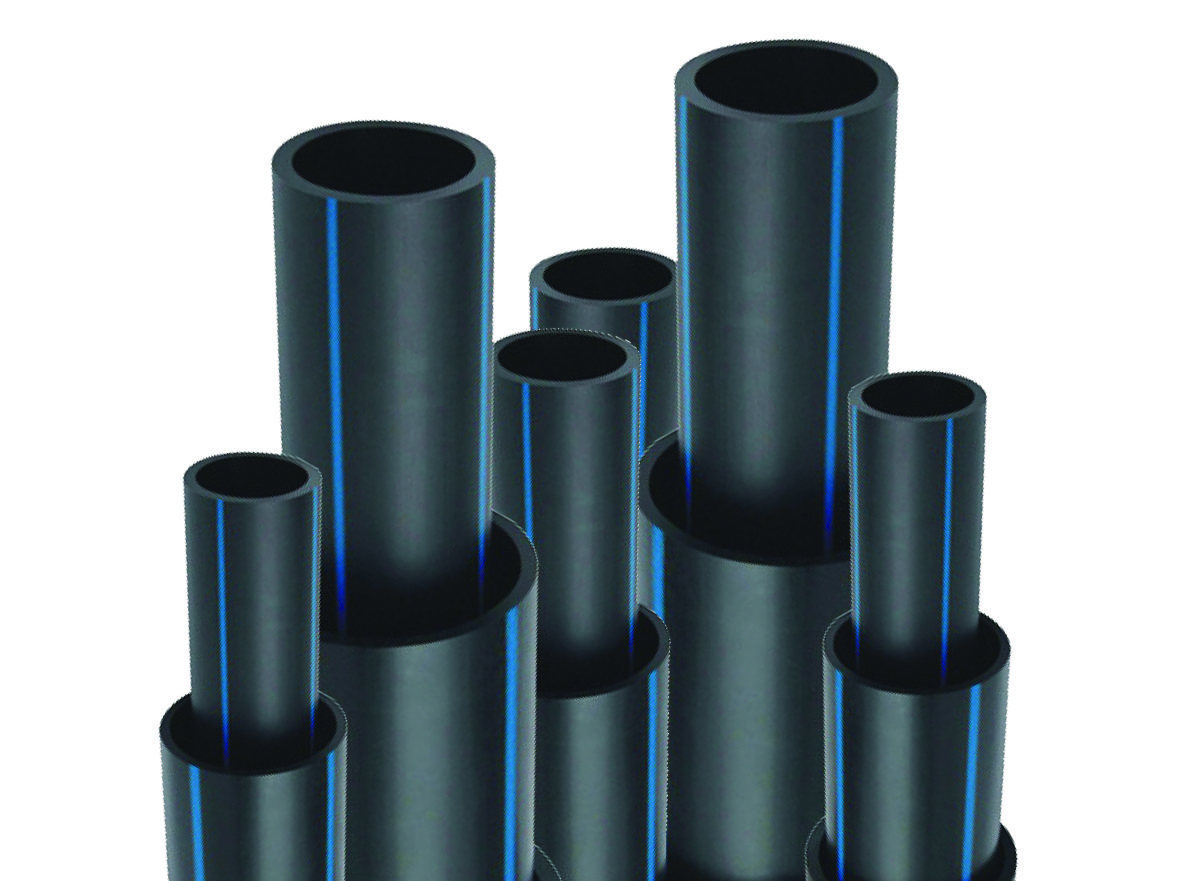Where to Find hdpe pipe in stock Midland TX for Urgent Projects
A Comprehensive Guide to the Numerous Uses HDPE Pipe in Construction and Market
HDPE pipes have actually become an essential part in modern building and commercial applications. Their distinct homes, such as resistance to deterioration and lightweight style, make them ideal for a broad array of usages. From water system systems to agricultural irrigation, HDPE pipelines offer remedies that boost effectiveness and sustainability. Recognizing their diverse applications is vital for specialists looking to enhance framework. What particular benefits do these pipelines bring to each market?
Water System and Circulation Equipments
Water and distribution systems are essential components of city facilities, usually counting on high-density polyethylene (HDPE) pipelines for their longevity and effectiveness. These systems transport potable water from treatment centers to customers, guaranteeing accessibility and security. HDPE pipelines are preferred for their resistance to deterioration, chemicals, and extreme temperatures, which improves their durability and lowers maintenance expenses. In addition, their lightweight nature enables less complicated installment and transport, making them perfect for different urban and rural applications.
The adaptability of HDPE pipes allows them to be mounted in tight rooms and around obstacles, reducing the need for extensive excavation (Midland TX HDPE Pipe Fittings in Stock). Their smooth interior surface area decreases friction losses, enhancing water circulation prices. As cities continue to grow, the need for trustworthy water systems enhances, positioning HDPE pipelines as a sustainable option for modern facilities tasks. Their tried and tested record makes them a favored choice amongst engineers and urban coordinators alike
Wastewater Monitoring and Therapy
Reliable wastewater monitoring and treatment are necessary for keeping public health and wellness and ecological top quality. HDPE pipes play a crucial function in this process because of their durability, resistance to deterioration, and capacity to stand up to severe chemicals. These pipelines are frequently utilized in various applications, consisting of sewer systems, stormwater water drainage, and wastewater treatment facilities. Their light-weight nature assists in easier installation and transportation, lowering labor prices and time.
Additionally, HDPE pipes have a smooth interior surface area that lessens rubbing loss, advertising efficient flow prices. They are additionally less susceptible to leakages and failures compared to traditional materials, making certain that impurities are had effectively. Their adaptability permits for adaptability in numerous soil conditions, making them ideal for diverse environmental setups. As industries progressively focus on lasting methods, making use of HDPE pipes in wastewater monitoring systems aligns with goals for reducing ecological impact and boosting source recovery.
Agricultural Irrigation Solutions
In farming setups, reliable irrigation services are essential for optimizing plant returns and managing black galvanized pipe water resources. HDPE (High-Density Polyethylene) pipelines play a vital duty in modern irrigation systems as a result of their sturdiness, versatility, and resistance to corrosion. Their ability to stand up to high pressures makes them suitable for both surface and subsurface watering applications, making sure uniform water distribution throughout fields.
Farmers can use HDPE pipes in drip irrigation systems, which deliver water directly to plant roots, minimizing wastefulness and promoting healthy and balanced development. Furthermore, these pipes are light-weight and easy to mount, minimizing labor expenses and installation time. Their lengthy lifespan and reduced maintenance needs better boost their charm in agricultural practices.
HDPE pipelines are ecologically pleasant, as they can be reused and do not leach damaging chemicals right into the soil. This makes them a lasting choice for farmers aiming to embrace environmentally friendly agricultural methods while maximizing productivity.
Industrial Applications and Processes
Versatility is a characteristic of HDPE pipes, making them crucial in different industrial applications and processes. These pipes are commonly used in chemical processing sectors due to their exceptional resistance to a vast array of harsh substances. HDPE's light-weight nature, integrated with high tensile stamina, enables for easy setup and long-lasting efficiency sought after settings.
In the oil and gas market, HDPE plumbing lead pipelines play a necessary role in transferring hydrocarbons and gases, thanks to their resilience and adaptability - American Plastics HDPE Pipe for Oilfield. Furthermore, they are used in mining operations for the transport of slurry and various other products, where standard piping systems may stop working
HDPE pipelines are significantly utilized in producing centers for water supply lines and wastewater administration. Their capacity to withstand extreme temperature levels and stress makes them suitable for a range of industrial procedures. On the whole, HDPE pipelines contribute significantly to performance and safety across diverse industrial applications.
Stormwater Management and Drainage Equipments
Stormwater monitoring and drainage systems are important components in city framework, developed to take care of excess rains and lower flooding risks. High-density polyethylene (HDPE) pipes are increasingly utilized in these systems as a result of their toughness, versatility, and resistance to rust. These pipes successfully transport stormwater away from inhabited areas, minimizing surface runoff and stopping waterlogging.
HDPE's lightweight nature assists in much easier setup, reducing labor expenses and building time. Furthermore, its resistance to chemicals and ecological stressors guarantees longevity and reliability in different climates. In enhancement to traditional water drainage applications, HDPE pipes are additionally employed in innovative remedies such as eco-friendly facilities, which consists of rain yards and absorptive pavements.

Frequently Asked Questions
How Does HDPE Pipe Contrast to PVC Pipeline in Price?
In general, HDPE pipeline tends to be a lot more expensive than PVC pipe as a result of its improved durability and adaptability. Long-lasting cost factors to consider, such as maintenance and life-span, might favor HDPE in particular applications.
What Is the Life-span of HDPE Pipes Under Varying Problems?
HDPE pipelines normally have a life-span of 50 to 100 years, depending upon environmental conditions, installment methods, and usage. Variables such as temperature, dirt kind, and direct exposure to chemicals can greatly influence their toughness.
Can HDPE Piping Be Recycled After Usage?
Yes, HDPE pipes can be reused after use. The reusing process involves thawing down the material, allowing it to be repurposed right into new items, thereby advertising sustainability and decreasing ecological effect related to plastic waste.
Exist Any Particular Setup Difficulties With HDPE Pipelines?
Installation challenges with HDPE pipelines consist of appropriate jointing strategies, making sure adequate trench conditions, and taking care of thermal development. Furthermore, competent labor is required to manage specialized equipment, which can complicate the installation procedure in different environments.

What Qualifications Should I Search For When Investing In HDPE Pipes?
When buying Your Domain Name HDPE pipelines, one need to try to find accreditations such as ASTM, AASHTO, and ISO, which confirm quality and conformity with sector standards, assuring toughness and efficiency in numerous applications. - American Plastics HDPE Pipe Manufacturing